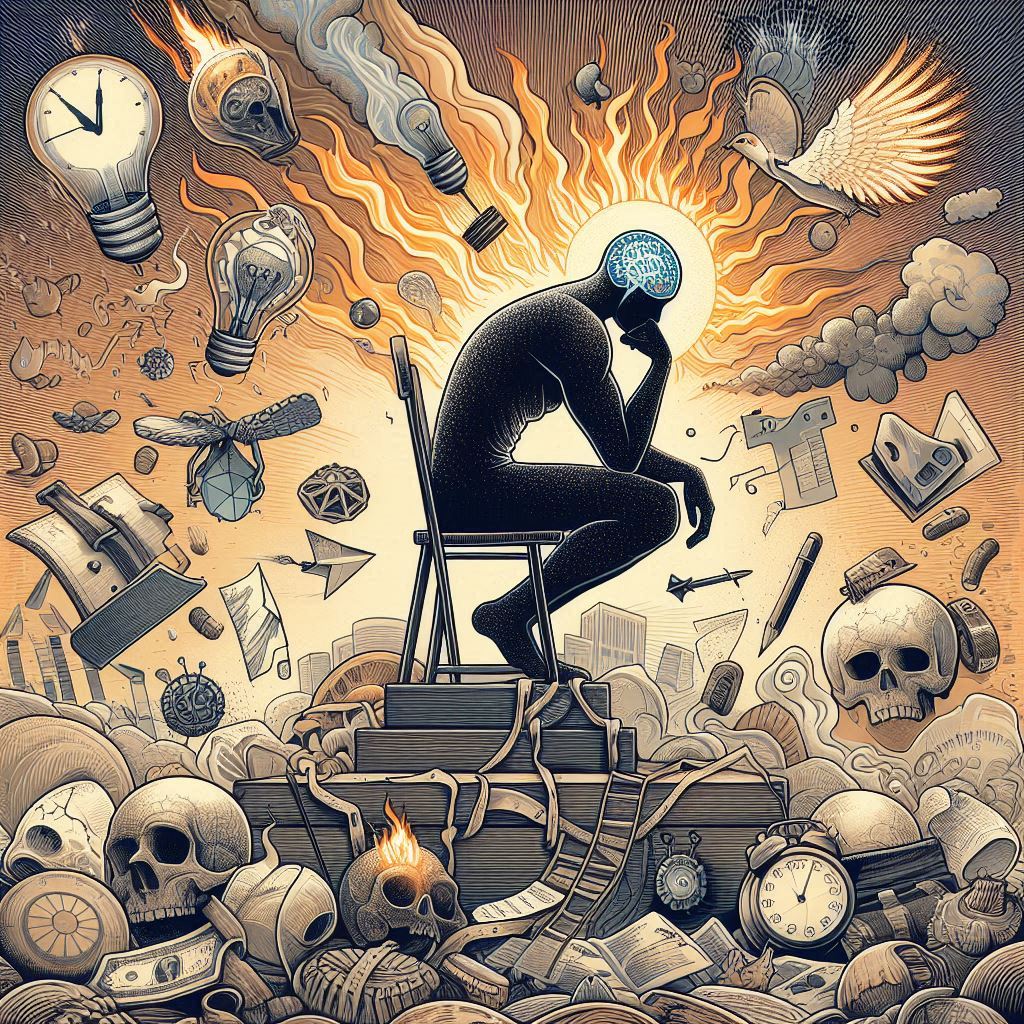Why Most People Are Burnt Out (and How to Heal, Slowly)

Description :
Burnout is more common than we admit. This article gently explores why we break down—and how to slowly heal, not with hustle, but with presence, rest, and real self-compassion.
I’ll be honest.
There was a time when I woke up every morning already tired.
Not because I lacked sleep—but because life felt like a checklist I didn’t sign up for.
Emails, meetings, deadlines. Family, pressure, expectations.
Smile. Perform. Repeat.
No room to breathe. No space to feel.
And at some point, I stopped asking, “Is this how life’s supposed to feel?”
Turns out, many of us feel the same.
Not just tired—but burnt out.
Physically here, emotionally gone.
Burnout Isn’t Laziness. It’s a Quiet Collapse.
We tend to dismiss burnout as weakness.
We think, “Maybe I’m just not trying hard enough.”
But burnout isn’t about effort. It’s about depletion.
The World Health Organization defines burnout as:
“A syndrome resulting from chronic workplace stress that has not been successfully managed.”
But in truth, burnout goes beyond work.
It bleeds into how we see ourselves.
It erodes joy, numbs passion, makes everything feel heavier than it should.
And the scariest part?
We get used to it.
We normalize it.
We think:
- “Of course I’m exhausted, everyone is.”
- “Life is just hard.”
- “I’ll rest when I finish everything.”
But here’s the truth: there is no finish line.
If we wait to rest until everything’s done, we’ll never rest.
How Did We Get Here?
Let’s pause and ask: Why are so many of us burnt out in the first place?
1. We Confuse Productivity with Worth
From school to adulthood, we’re wired to equate output with value.
Do more. Achieve more. Be more.
But humans are not machines.
We’re not built for constant optimization.
Still, we push.
Even when our bodies say no. Even when our hearts whisper, “Please slow down.”
2. We’re Always “On”
Thanks to technology, the line between work and life has blurred.
We reply to messages at midnight.
We scroll endlessly, always digesting something.
We never really unplug.
Our nervous system was not designed for this much input.
No wonder we feel fried.
3. We Ignore the Signs
Burnout doesn’t scream.
It whispers—until it breaks you.
You lose interest in things you love.
You become impatient, numb, detached.
You start to dread the day even before it begins.
We ignore these signs.
Because we’ve learned to value pushing through over listening in.
So… How Do We Heal? (Gently)
There’s no instant fix.
But healing starts with one radical act: honesty.
Here’s what I’ve learned on my own slow journey back to aliveness:
1. Stop Wearing Exhaustion as a Badge of Honor
Being tired all the time is not a symbol of dedication.
It’s a cry for help.
We have to unlearn the pride in overworking.
Rest is not laziness. Rest is repair.
Say this to yourself out loud if you have to:
“I deserve to rest. Even if things are unfinished.”
Because they always will be.
2. Start Small: Micro-Rest, Micro-Joy
You don’t need a 2-week vacation to begin healing.
Sometimes, all it takes is:
- 3 minutes of deep breathing
- Looking at the sky for no reason
- Putting your phone away while you eat
- Stretching for 2 minutes before bed
These micro-moments tell your nervous system:
“You’re safe. You don’t have to run anymore.”
3. Reconnect with What Makes You Feel Alive
Burnout steals our spark.
So healing involves reclaiming it—bit by bit.
What did you once love, before everything became about being useful?
Maybe it’s music. Or sketching. Or walking slowly in silence.
Whatever it is—make space for it again.
Even for 5 minutes a day.
Because healing isn’t just about avoiding stress.
It’s about returning to joy.
4. Set Boundaries (Even If It Feels Awkward)
Saying “no” can feel selfish.
But sometimes, “no” is the kindest thing you can say—to others and yourself.
- No, I can’t take that extra task today.
- No, I won’t answer emails after 8 p.m.
- No, I don’t have to explain my healing.
Boundaries aren’t walls. They’re doors you control.
You’re allowed to choose peace over pressure.
5. Talk About It (You’re Not Alone)
One of burnout’s cruel tricks is isolation.
We think we’re the only ones struggling.
But when we speak up—gently, honestly—we find others exhale too.
“You feel that way too?”
Talk to a friend. A coach. A therapist.
Or even write to yourself.
Burnout loses power when it’s named.
6. Redefine “Success”
Maybe success isn’t climbing higher.
Maybe it’s coming home—to yourself.
Ask:
- What does enough look like?
- What would a kind day feel like?
- What kind of life would I love to wake up to?
Sometimes, the most courageous thing you can do is choose a softer path.
Final Thoughts: Healing Is Not a Project. It’s a Practice.
If you’re feeling burnt out—you’re not broken.
You’re not behind.
You’re just… human. And maybe tired from pretending not to be.
Healing won’t happen overnight.
It won’t come in one epiphany or retreat.
But it will come—in moments.
In breaths.
In every act of choosing slowness over speed.
Presence over perfection.
Compassion over comparison.
So here’s your gentle reminder:
You’re allowed to rest.
You’re allowed to feel.
You’re allowed to begin again—slowly.
One breath at a time.[*]
